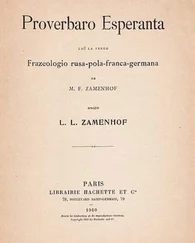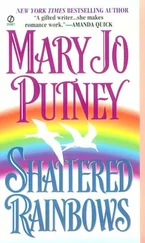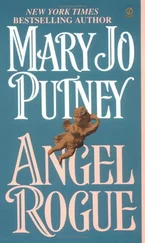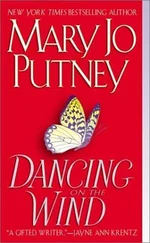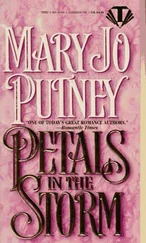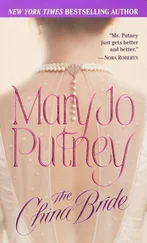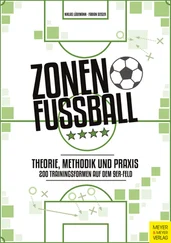As she waited on Putney Bridge for the bus home Jane glanced down at the bright-blue Greek eye staring out from her chest. She would never normally wear something as quirky and conspicuous as this. The panic had dissipated, but she felt as disoriented as if she’d been flung back in time and now inhabited the plump, hormonal flesh of her teenage self.
His body was turning away from him, poisoned, sliced and wrenched from the easy familiarity he’d taken for granted. New aches and shooting pains, biliousness and constipation, gauzy eyes and dry mouth; betrayal. He was an old crock of blood and bones. Returning home from the treatments, he caved in, lying in the bath for hours, not reading or planning music or doing any of the things he was accustomed to when cradled in warm water. Now he found he could just let his mind wander, knowing the direction it would take, back to when he was so young and vigorous he was unaware there could be anything else. His mind frequently snaked away to his childhood: the boys at school he’d kissed, with knee scabs smelling of TCP and necks as tender as goslings; trees he’d climbed and sat in spying from green hiding places; but most of all it blurred back to Daphne.
In truth it wasn’t just Daphne, but a whole package. These days, he rarely saw any of the Greenslays, but back then they were like a substitute family – friends, comrades, collaborators, lovers. His work with Edmund on Oedipus Blues was followed by their show for children based on Aesop’s Fables , with young dancers dressed up as foxes, crows, grasshoppers and ants. The music mixed Indian ragas and jazzed-up English nursery rhymes in a way that was ‘outrageously eclectic but breathtaking’, as The Times critic put it. Edmund’s established reputation was helpful to Ralph and he was introduced to producers, managers and influential types in the media world, whose reviews could make all the difference. It was also undeniable that Ralph’s youth and animated vigour reflected a flattering light on to Edmund, perhaps lending a wilder element to his reputation.
These collaborations had the added advantage of making it much easier for Ralph to drop by Barnabas Road without it looking odd. He could leave a note hidden under Daphne’s pillow or time a visit to coincide with her return from school. And if neither Edmund nor Daphne were around, Ellie had also become a friend who enjoyed the company of the young composer. She was mercurial like her daughter – you didn’t quite know what you’d find. They never repeated the madly risky fuck (locked in the bathroom at Barnabas Road, while a party was taking place downstairs), but it left an air of intrigue between them. ‘Write us a revolutionary song,’ she repeatedly demanded, though he never did. ‘Leave Edmund’s myths and monsters and give us something to march to.’
He knew it had been 1976 when he went to Greece with Daphne because it was that bizarrely hot summer, when a seemingly endless series of cloudless days baked the country into an almost unrecognisable landscape. Londoners cooled off their feet in public fountains and had picnics in desiccated parks, their character transforming into something lighter and more appealing. It was like witnessing the marvel of adding heat to yeast, flour and water and finding you have bread. As the city took on a Mediterranean atmosphere, the accustomed odours of damp stone and muddy gutters were replaced with grass turning to hay, melting tarmac and unlikely whiffs of Ambre Solaire.
The plan proceeded so smoothly it was as if a natural order was merely falling into place. He could scarcely believe how easy it had been. Daphne’s parents needed no persuading; they were grateful when he offered to take their daughter to Greece and deliver her to some cousins. Ed was already away in Germany giving some talks, Theo had just left school and was travelling in Scotland with Liam, and Ellie was going to Paris as soon as a solution was found for her daughter. ‘How’s your pet existentialist, Jean-Luc?’ Ralph asked her when they spoke on the phone. It was abundantly clear why she was always rushing off to France.
It did not feel like lying when he told Nina he would join her and the baby in Greece and gave her a date three days after his scheduled arrival. Nina had already been at her family’s house in Pelion for a month. She wrote letters annotated with charming cartoons depicting her tranquil days taking little Jason on expeditions to the beach and for evening strolls around the village. When their son was asleep she painted. She described her landscapes as full of colour and hope, like distilling everything that was good around her and putting that on the canvas. He was pleased to hear this. It calmed him. Ralph adored Jason, but he admitted never actually suffering when they were apart. It was enough to know that his son was safe and well.
‘I’ll be chaperoning two terrible teenagers – Daphne and her friend,’ he told Nina. ‘A nightmare, I expect. But I want to help out Edmund and Ellie.’ A few more days without him would make little difference to her, he reasoned.
Compartmentalising his life allowed Ralph to lead separate existences, each with its own truth. He pictured it like the old-fashioned train carriages that were just being phased out, where there was no corridor or link between compartments; you merely entered and left at the platform. Using this model, his obsession with Daphne had no impact on his love and commitment to Nina and Jason. He would never abandon them and he explained this to Daff. It was entirely possible to love more than one person at the same time and neither relationship had to compromise the other.
He didn’t tell Daphne (or Nina) his train-compartment theory, but he found it helpful to think of leaving one carriage before entering another; it kept things discrete. Daphne once told him she hated those closed carriages on trains – they hadn’t quite been discontinued. ‘You feel trapped,’ she complained. But he considered them the best and certainly the sexiest form of transport – apart, of course, from sleeper trains, which were almost too much of a provocation. If you were lucky enough to get such a carriage to yourself and the object of your desire, you were free to exist totally and exclusively in that space – at least between one station and the next. He told Daphne how he once kissed a fellow schoolboy while hanging from the luggage rack. His fingers had hurt from pulling so tightly at the maroon string netting. In truth, it had been more than a kiss and they’d yanked off a white antimacassar from the seats afterwards to wipe themselves. But by the time a plump mother and two young children got in at the next stop, both boys were sitting in a red-cheeked daze, staring out of the foggy window with seraphic calm.
It was clearly going to be another ‘scorcher’, but the morning was still pleasantly cool when he took the train from Battersea to Putney station and walked down the hill to Barnabas Road. He noticed that he was smiling, as though his face had arranged itself into that shape without his knowledge. His pace, always brisk, was so buoyant he almost floated along the pavement, despite the large rucksack on his back. Young and fit, he was ready for anything.
When she opened the door, he saw immediately that she was Elusive Daphne today – not Wild Daphne or Teasing Daphne and certainly not Soft Daphne. She kissed him carelessly and turned on one foot with dancer’s control to pick up a rough, ex-army duffel bag almost the same size as she was.
‘Where’s Ellie?’
‘Oh, she left for Paris yesterday afternoon. There’s nobody here.’
‘Off with that anarchist Prince Charming, is she? I don’t know what she sees in the nincompoop, with his overcooked Gallic charm and unreadable little magazine. Christ, he even wears a beret – so we won’t forget he hails from the centre of the civilised world.’
Читать дальше

